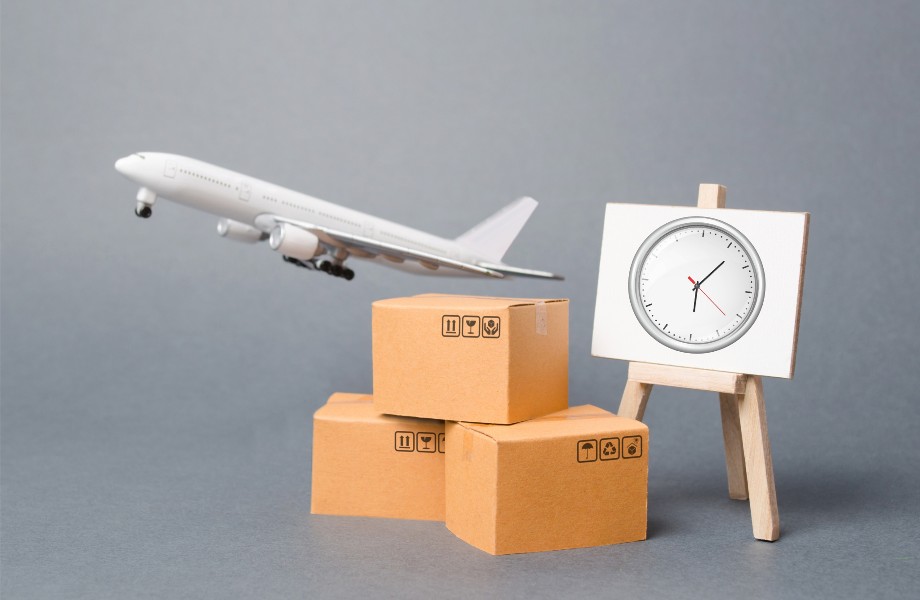What is express shipping?

Express shipping, often known as express delivery, is the fastest and most efficient mode of shipping available in the logistics industry. Customers who require their packages to be delivered promptly opt for express shipping, willing to pay an extra shipping cost for the high speed and reliability it offers.
In this article, we delve into the concept of express shipping, exploring the differences between standard shipping and the benefits you can enjoy to ensure your packages reach their destination intact and on time. Let’s take a closer look.
What does express shipping mean?
When people ask what is express delivery or express shipping, the answer is that it is shipping that stands out mainly for its remarkable speed. When you choose express delivery, your package shifts into the fast lane, with delivery times ranging from 24 to 72 hours. This rapid turnaround time is great for businesses and individuals alike, especially when time is of the essence. On the one hand, businesses can serve more customers faster and on the other, customers can enjoy greater convenience and satisfaction.
Express vs. standard shipping: The key differences
In order to understand what express shipping is, it’s important to differentiate between express and standard shipping. Below, we outline the key differences so that you can make a more informed decision for your business. But first, what is standard shipping?
Standard shipping is the conventional method of shipping that does not offer an overnight or expedited delivery option. When you choose standard shipping, you can expect a regular delivery timeframe, typically ranging from two to eight days. Unlike express shipping, which prioritises speed, standard shipping takes a somewhat longer route to reach its destination.
One of the distinguishing features of standard shipping is its affordability. This shipping option is often more cost-effective compared to express shipping, making it an attractive choice for those who are willing to wait a bit longer for their packages. Standard shipments are typically transported by road using surface couriers, which further contributes to their economical nature.
What are the differences between express and standard shipping?
- Speedy delivery: The most striking difference between express and standard shipping is the speed of delivery. Express shipping is the fastest delivery method available. While standard shipping methods may take days or even weeks to deliver items, express shipping gets packages to their destination in record time. This is ideal for customers who need their products urgently or simply value a prompt service.
- Enhanced security: When it comes to shipping, security is paramount. Express shipments, often classified as airfreight, undergo rigorous security measures to ensure the safety of both the cargo and those handling it. This heightened level of security is important in today’s world, where concerns about the integrity of shipments are growing. Everything in an express shipment is meticulously scanned for safety, giving you peace of mind that your items will arrive intact and unharmed. Our shipping specialist notes that “depending on size, some express shipments go by normal commercial flights, providing more options. However, really large crates and pallets may be transported via cargo-only planes, which can limit the options but still guarantee security.”
- Valuable cargo: High-value items that need to be shipped often use the express shipping route as a preferred choice. High-value items, for insurance purposes, are best sent via express methods, as the increased security and speed can significantly reduce the risk of loss or damage during transit.
Benefits of express shipping
Now that we’ve covered the basics of express shipping and what sets it apart from standard shipping, let’s look at the key benefits of choosing this speedy delivery method:
- Speed: Express shipping is fast, ensuring your package reaches its destination in the shortest time possible.
- Enhanced security: Rigorous scanning and security measures reduce the risk of damage or loss during transit.
- Global reach: Express services cater to both local and international shipments, offering a wide range of destinations.
- Peace of mind: High-value items are best shipped via express methods, providing added insurance and security.
- Efficiency: Streamlined processes and advanced tracking systems make for a hassle-free shipping experience.
- Reliability: Express carriers are known for on-time deliveries, ensuring your package arrives when promised.
Conclusion
Express shipping is the answer to the modern need for swift, secure and reliable deliveries. Its key differences from standard shipping, such as speed, enhanced security and global reach, make it the preferred choice for many.
Whether you’re sending a time-sensitive document or valuable merchandise, express shipping ensures your items reach their destination with speed and precision.
So, the next time you’re in need of dependable international express shipping from Denmark, consider opting for express shipping provided by a reputable international shipping company to experience the ultimate in shipping convenience.
FAQs
Is express shipping more expensive than standard shipping?
Yes, express shipping comes at a higher cost due to its speed and added security measures.
Can I track my express shipment in real-time?
Absolutely. Express shipping services offer real-time tracking.
Are there any size limitations for express shipping?
While most packages can be sent via express delivery, larger items may require special arrangements.
Do I need to opt for express shipping for high-value items?
It’s advisable to choose express shipping for high-value items to benefit from enhanced security and insurance coverage.
How does express shipping impact the environment?
Express shipping may have a slightly higher carbon footprint due to the use of airfreight. However, some providers are working to offset these emissions through eco-friendly initiatives.